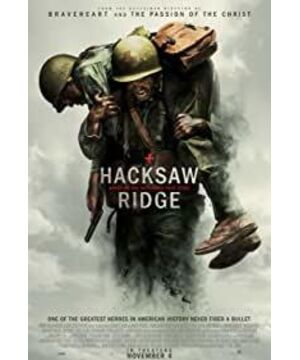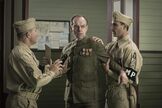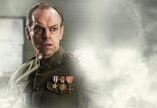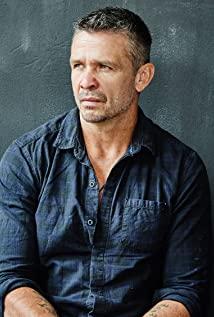"Blood Battle at Hacksaw Ridge" tells the true story of the American army's battle to capture the Hacksaw Ridge on Okinawa, Japan at the end of World War II. In fact, the grand battle scene is only a background of the story. What the film focuses on is the deeds of a medical soldier named Doss in this battle. After the Japanese raid on Pearl Harbor, Doss responded to the call of the country and joined the army. However, he believed in Christianity but refused to take a gun and refused to kill. For this reason, he was defined as the crime of objection to military service and was almost imprisoned. After several twists and turns, he became a medical soldier in the army, but he was bullied and discriminated against by the fighters because he refused to take the gun. However, it was such a medic who was regarded as a coward who became a hero in the battle of Hacksaw Ridge. Unarmed, he rescued 75 wounded comrades in the army. What is intriguing is that among the wounded he rescued, there was even his own enemy-Japanese soldiers.
Doss' deeds can't help but make people question and reflect on the purpose and significance of the war. In the film, young Americans join the army in order to defend their hometown and even defend the democratic and free system of the United States; while their opponents, the soldiers of the Japanese army, shout "Fight for Your Majesty the Emperor" in the battle. The fighting between the young people of the two countries is all for a certain metaphysical value rationality, which points to the country, politics, and values, but it does not point to the people themselves. So we see that under the grand terms of country, system, and values, every living person has been reduced to a simple tool and method. In order to defend the country’s systems and values, it is necessary to kill as many young lives as possible from the enemy’s army. As for what means you used to kill him, it has become irrelevant. The value rationality in the name of defending the country and the instrumental rationality using living people as tools and means constitute such an incomprehensible contradiction, which makes people embarrassed.
Doss sees this contradiction in war. Therefore, in his view, defending the country should be as important as respecting individual life. Depriving lives in the name of war violates his values. One of his famous sayings in the film is: "You participated in the war to kill lives, and I participated in the war to save lives." It is this reverence and respect for life itself that prompted him to risk all kinds of dangers and save lives. Nearly a hundred wounded who might have become useless in the eyes of other fighters were dropped, and these wounded also included Japanese fighters. This undifferentiated love for mankind itself may seem pedantic, ridiculous and out of place in the eyes of many people, but it exudes a unique light in the brutal and violent war.
Why is there always a large number of massacres, rapes, and looting of civilians during the course of the war? It is precisely because these soldiers have regarded the killing as a goal during the killing process, and have lost their awe and compassion for their lives. In this film, scenes of flesh and blood appear again and again. On the one hand, there is a life-and-death struggle, on the other hand, Doss is constantly saving every battle that may still survive with an almost paranoid attitude. The contrast and switching between the scenes is sufficient to explain the director's attitude towards war.
Relying on his insistence on humanitarianism, Doss finally won the respect of all his comrades in arms. However, in his body, he is also faced with painful and complicated inner paradoxes. In the film, the Japanese army's grenade was thrown at Doss. In desperation, he instinctively threw the unexploded grenade back to the Japanese army. In the sound of the explosion, the Japanese soldiers were blown to pieces. So, does Doss's actions count as slaughter, or is it a violation of his beliefs? The question to be asked further is: If everyone refuses to kill like Doss, then how will the war proceed? In other words, is there really a need for a war against various values?
Faced with these questions, Doss may not be able to give answers. At the end of the film, Doss, tied with a cable, hangs in the air. The director specially gave a freeze frame for a few seconds at this time. Doss in mid-air is like a suffering Jesus, fighting against the huge disaster brought about by war with his own piety. . And in front of the screen, facing this scene, will we reflect on our accustomed view of war?
hope so.
2017.1.13 late at Zhulinzhai
(This article will be published in the "Cultural Perspective" column of "Jianghai Evening News".)
View more about Hacksaw Ridge reviews











